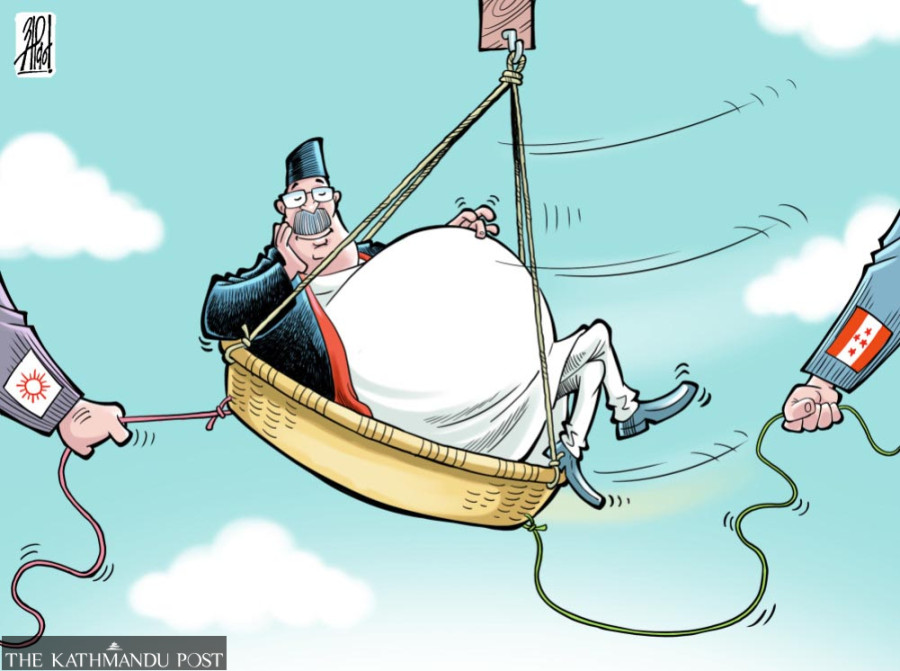Editorial
The great ‘tamasha’
The latest change of coalition is more indication of politics bereft of ethics. Most top leaders are culprits.
Until Sunday, when Prime Minister Pushpa Kamal Dahal was in alliance with the Nepali Congress, democracy was derailed, the peace process was sabotaged, justice was delayed, and the country faced danger from reactionary forces. But had he not, over a year ago, changed coalition citing more or less the same reasons? When KP Sharma Oli justified his dissolution of Parliament while speaking during a floor test for Pushpa Kamal Dahal’s government last year, Dahal broke the coalition with Oli. He claimed that Oli had not changed a bit when it came to realising the anti-democratic nature of his action. Oli has not indicated any change in his stance, but Dahal now seems to forget Oli’s misadventures.
Interestingly, as if they were not aware of Dahal’s amnesia, Nepali Congress leaders have been expressing shock and dismay at his change of coalition partners for no apparent reason. Dahal’s latest decision might have come a bit more hastily than on previous occasions, but it was a given that he can hardly ever commit to long-term relationships. Congress President Deuba is still shocked at how Dahal broke his trust, settling with the word dhokhebaaj to explain Dahal’s action. Deuba certainly has much to explain to the party, a major faction of which, led by Shekhar Koirala, is looking for ways to discredit his leadership. But masking his discomfiture with Dahal’s deception does not suit Deuba well, for he had claimed a similar dhokha when he was sacked by King Gyanendra over two decades ago for being “incompetent”. Oli, who is being touted as the mastermind of the new coalition, is arguably no less of an opportunist, having long since abandoned his socialist mien and beliefs for the expediency of power.
More than dhokha, though, the word that comes closer to explaining the goings-on in Nepali politics today is tamasha. The ugly spectacle of government change for one silly reason for another has been going on for over a decade and a half in republican Nepal now, with no end in sight. The electoral system that mostly precludes the possibility of majority seats for any single party, coupled with the lack of moral integrity among politicians, has propelled the vicious cycle of making and breaking governments. No ideological meeting points are needed in this cycle, as the only requirement is the match of self-serving interests. All in all, the mutual betrayers among the old establishment have turned politics into a zero-sum game.
As if the antics of the old ones were not enough, the newbies in the political scene, including the Rastriya Swatantra Party (RSP) and the Janamat Party (JP), have started to play along. Rabi Lamichhane’s “Mission-84” against the old forces has gone for a toss as he has joined them, and CK Raut of the JP is still waiting for a plum ministry at the centre before he decides to join them. With every political party, old or new, changing its colour now and then based on a common chase for power, Nepali politics continues to be a game bereft of ethics.




 10.12°C Kathmandu
10.12°C Kathmandu













